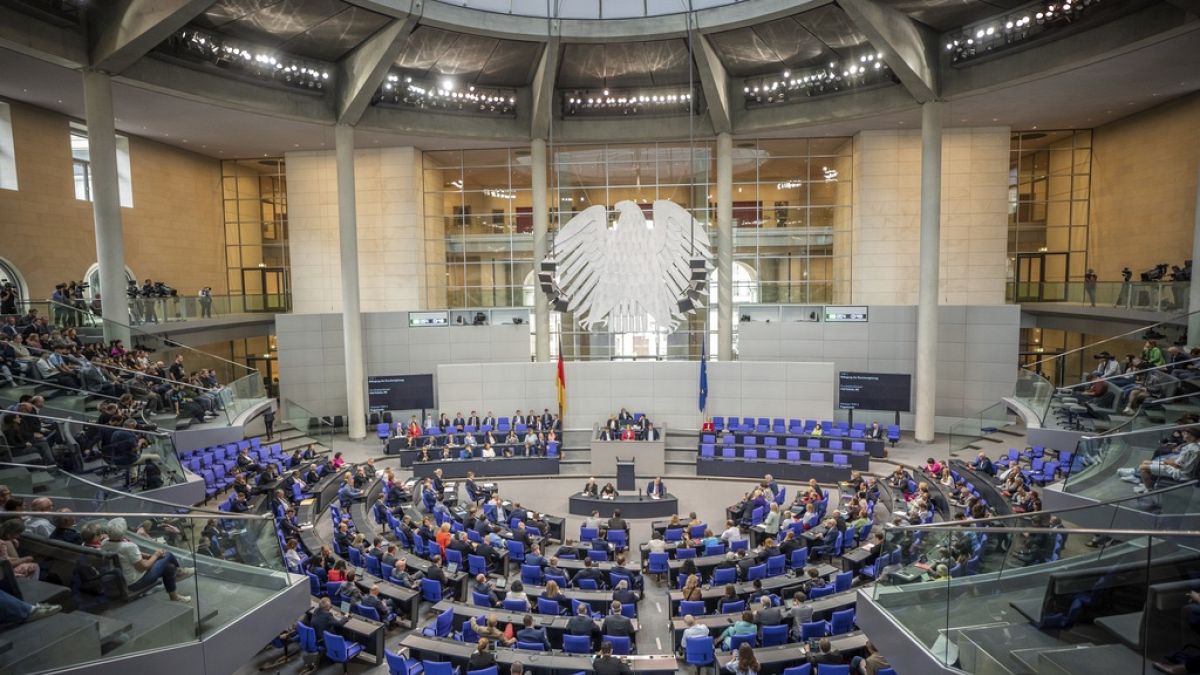Germany's highest court on Tuesday upheld the central part of an electoral reform designed to downsize the country's increasingly bloated parliament.
Germany's highest court has upheld a proposal to downsize its parliament, but overturned a planned change that would disproportionately impact smaller parties.
The Federal Constitutional Court in Karlsruhe ruled the abolition of the so-called basic mandate clause "unlawful". It came after they received objections from the centre-right Christian Social Union, and the smaller Left Party, who feared the change could cost them their chance to send lawmakers to Berlin.
The maintaining of this rule means that parties receiving less than 5% of the vote will still be represented in the Bundestag if they have at least three directly elected lawmakers.
However, the core elements of the electoral reform will remain in place. This includes the cutting down of the Bundestag from 736 members to only 630, as well as the abolition of the overhang and compensatory mandates.
The country's last national election in 2021 produced a lower house of parliament, or Bundestag, with a record 736 members — bigger than the newly elected European Parliament.
Parties across the political spectrum agree that the Bundestag has too many members, but they have disagreed for years on what to do about it. Lawmakers last year approved a plan by Chancellor Olaf Scholz's three-party governing coalition to cap the chamber's size at 630 members starting with the next general election, due in September 2025.
How are German MPs elected?
In German elections, every voter gets two votes: one for a directly elected candidate, the other for a party list.
Each of the country’s 299 constituencies elects a representative directly by a simple majority vote. At least 299 further seats go to candidates elected on party lists. The list votes are critical because they determine the percentage of seats each party wins — but to share in the division of seats, a party has to win 5% of the list vote or have at least three directly elected lawmakers.
Under the old rules, if a party won more seats via the direct vote than it would get under the party vote, it kept those seats, but more were added for other parties to ensure their proportional vote was reflected accurately.
Because Germany’s traditional big parties continued to dominate the direct vote even as their overall support declined, that increasingly resulted in the Bundestag having many more lawmakers than the minimum 598.
The new system approved last year included no additional seats, which means that some candidates could win their constituency vote yet still fail to secure a seat in parliament. The Supreme Court upheld this aspect of the system.
The legislation also eliminated the provision under which parties that fell short of 5% support still got a share of the seats if they had at least three directly elected lawmakers. The court struck down this element on Tuesday.
The change was a concern for the CSU, which runs only in Bavaria and has long dominated that state's politics but is still subject to the nationwide 5% hurdle. And it infuriated the Left Party, which fell short of 5% support in 2021 but still emerged with a full parliamentary group because it had three directly elected lawmakers.
CSU leader Markus Söder, the Bavarian governor, wrote on social network X that the ruling was a “success for Bavaria and a slap for the national government." He said that a change to the remaining part of the reform would be a condition for his party entering the next government.
But Bundestag speaker Bärbel Bas, a member of Scholz's Social Democrats, said the court had approved “the core of the new electoral law.” She said the chamber would in future be capped at 630 members and that is “an important signal to voters” that “there will no more uncontrolled growth.”












